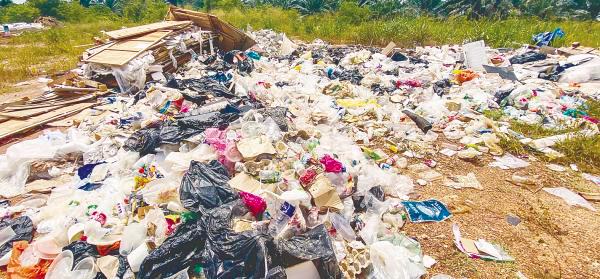PETALING JAYA: Illegal dumpsites and dumping in Malaysia are so widespread that it has become a serious problem across the country, said NGO Environmental Protection Society Malaysia president Nithi Nesadurai.
High-populated urban areas, regions with insufficient waste collection facilities, and areas under intense development are particularly affected due to the disposal of high amounts of construction waste.
“In 2023, 59 illegal dumpsites were identified in Putrajaya. Between 2017 and 2022, Johor Bahru and Iskandar Puteri in Johor reported 257 and 101 illegal dumpsites respectively,” Nithi said.
On Feb 5, Housing and Local Government Minister Nga Kor Ming said the closure of 2,093 illegal dumpsites in 2023 incurred an estimated clean-up cost of RM1.6 million.
The operation spanned seven states, resulting in the removal of 6,410 tonnes of waste within one year of the government’s tenure.
Nga stressed on the gravity of the issue and attributed it to a lack of civic-consciousness among the people, irresponsibility among some sections of society, and the involvement of waste removal cartels.
“Acknowledging the seriousness of the problem, I have highlighted the need for stricter law enforcement.
“Notably, the Solid Waste Management and Public Cleansing Corporation carried out 1,082 operations to address 2,093 landfill sites, while 15 illegal dumpsite cases led to convictions in court, with fines totaling RM168,000.”
Nithi said the environmental repercussions linked to illegal dumpsites are extensive, particularly concerning ecosystems, wildlife, and public health, adding that the solid waste at these sites contains elevated levels of organic matter and hazardous materials.
The pollutants have the potential to contaminate soil and groundwater, posing a significant threat to nearby water bodies.
“Downstream water intakes are affected as a result, presenting health hazards for individuals in direct contact with the contaminated water, even when pollutants are not visibly apparent.
“The disposal of organic waste at these sites attracts wildlife seeking sustenance. But eating waste material impacts the animals’ health, which would lead to increased pest infestations and ultimately causes cross-transmission of diseases from animals to humans.”
Nithi also said the unsightly nature of illegal dumpsites becomes evident as wind disperses waste over larger areas, emitting a stench and discomfort among residents in the vicinity.
“The associated clean-up costs further underscore the challenges posed by these illegal dumpsites,” he said.
However, Nithi said the authorities have a tough time addressing illegal dumping as the perpetrators prefer to avoid forking out money to fully dispose of industrial waste. There is also inadequate waste collection and low awareness leading to domestic waste dumping.
He said limited resources hinder the effective monitoring of large and isolated dumpsites.
To address such challenges, Nithi called for increased investment in waste management and facilities.
“There must also be regular waste collection, monitoring equipment, human resources, and awareness campaigns for residents.”
To improve the strategy against illegal dumping, Nithi said the government must ensure that local authorities implement the Local Agenda 21 (LA21) programme.
LA21 is a voluntary community consultation process aimed at creating local policies and programs that work towards achieving sustainable development. It encompasses awareness raising, capacity building, community participation and the formation of partnerships.
He said the collaboration can be achieved through consistent consultative processes on ecological sustainability, institutionalized within every local authority in the country.
To combat illegal dumpsites, Nithi said the government should focus on imposing purposes to deter offenders, along with enhanced monitoring and strict enforcement.
“Strengthening enforcement involves collaborative efforts between local authorities, NGOs, community organizations and the public, encouraging them to serve as additional monitors.
“Stakeholders can actively contribute by assisting in monitoring, documenting, and reporting evidence of illegal dumpsites to the local authorities, thereby facilitating more effective enforcement against illegal dumping and the proliferation of illegal dumpsites,” he said.









